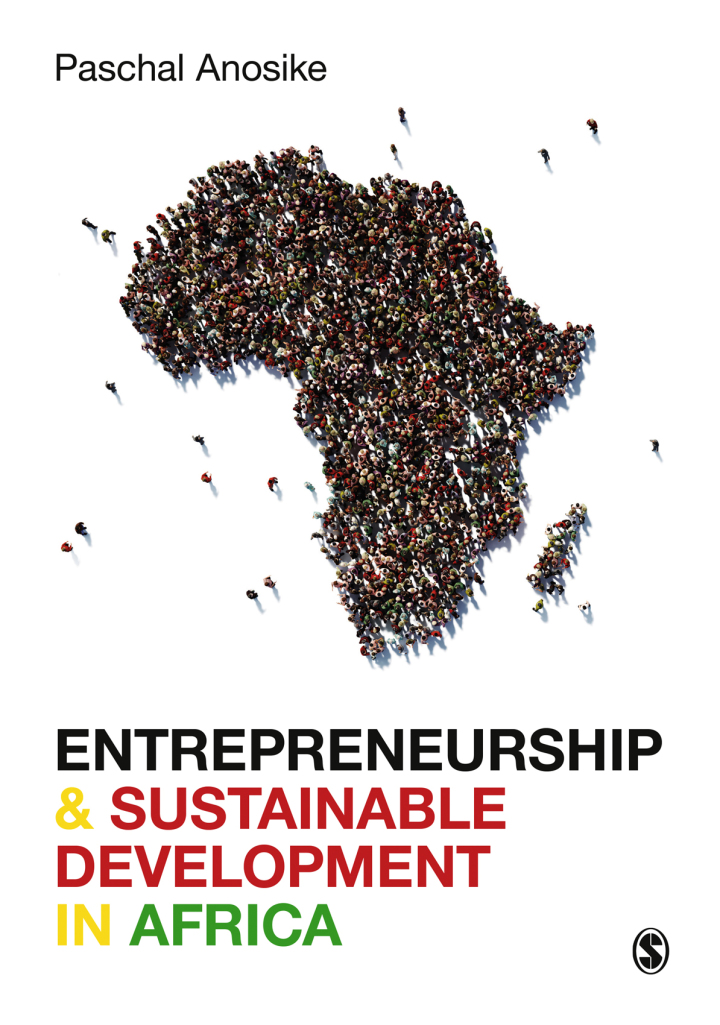
Entrepreneurship and Sustainable Development in Africa 1st Edition
PUBLISHER: Sage
Trường ĐH, Nhóm, Thư Viện: Gọi 0915920514 để báo giá eBook hosting trên Vital Source hoặc mua Sách In
Tinh thần kinh doanh và phát triển bền vững ở Châu PhiSự phụ thuộc cao vào viện trợ nước ngoài, vốn nhân lực kém, tỷ lệ thất nghiệp ở thanh niên ngày càng tăng và nghèo đói chỉ là một số lý do khiến Châu Phi trở thành biểu tượng nổi bật của sự bất bình đẳng toàn cầu ngày nay. Trong cuốn sách này, tác giả dựa trên nghiên cứu và kinh nghiệm làm việc với các bên liên quan chính để khám phá cách Châu Phi có thể tận dụng nền kinh tế tri thức và các cơ hội của Cách mạng Công nghiệp lần thứ 4 để tái thiết sau đại dịch Covid-19, đồng thời trao quyền cho người dân và khuyến khích tinh thần kinh doanh. Doanh nhân và phát triển bền vững ở Châu Phi là cuốn sách mà tầng lớp chính trị Châu Phi, các chuyên gia về chính sách kinh tế và phát triển, cộng đồng nhà tài trợ, các nhà nghiên cứu hàn lâm và sinh viên kinh doanh và phát triển quốc tế có thể dựa vào để hiểu rõ hơn và có giải pháp cho tình hình kinh tế xã hội lịch sử và đương đại của Châu Phi các vấn đề. Paschal Anosike là Phó Giáo sư về Khởi nghiệp và Đổi mới, đồng thời là Giám đốc sáng lập Trung tâm Lãnh đạo và Doanh nhân Châu Phi (CAEL) tại Đại học Wolverhampton.
Praise for the BookAbout the AuthorPreface1 Paradox of a Rising Africa1.1 Africa at Turn of the Millennium1.2 Africa’s Economic Turnaround – Illusion or Reality?1.3 Foreign Aid Flows and Determinants1.4 Does Aid Pay Off in the Long Run1.5 Has Aid Always Been Good for Africa? Botswana’s Case1.6 The Problem With Africa’s Aid1.7 Ethiopia and Foreign Aid1.8 Ethiopia’s Political and Economic Contexts1.9 Towards Sustainable Development in EthiopiaBibliography2 Economic Growth and Human Development2.1 Institutions2.2 Institutions, Human Development and Economic Growth2.3 The Problem With Poverty Line2.4 The Problem With Purchasing Power Parity2.5 Global Poverty and Its Causes2.6 Poverty in Africa2.7 Education in Nigeria2.8 Ethiopia Health Sector2.9 Transforming Education – Towards the SDGs2.10 Transforming Healthcare – Towards the SDGsBibliography3 Institutional Contexts of Resource Governance3.1 Natural Resource and Economic Development3.2 Resource Curse and Causes3.3 State Fragility and Resource Governance3.4 Nigeria, Oil Resources and Governance3.5 Economic Cost of Institutional Deficiency3.6 Economic Cost of Corruption in Resource Governance3.7 Tackling Resource Curse3.8 Resource-rich African Countries: Moving ForwardBibliography4 Demographic Dividend and Challenges4.1 Africa’s Demographic Transition4.2 Demographic Challenges4.3 Youth marginalisation, Why It Matters?4.4 Youth Marginalisation in Political Leadership4.5 Authoritarianism and Youth Disaffection4.6 Emigration by African Youths4.7 Emigration Trends, Patterns and Spillovers4.8 Cost of Brain Drain4.9 Roadmap for Demographic Dividend4.10 Making Africa Work for Young People4.11 Educating Youths for the Knowledge EconomyBibliography5 Youth Employability5.1 Employability Skills and Livelihood5.2 VET in Africa, Origins and Development5.3 TVET in Africa5.4 Why TVET Is Failing in Africa5.5 Vet, European Contrasts5.6 New TVET Strategy, Old Wine in a New Bottle5.7 Reforming TVET, What Africa Can DoBibliography6 Entrepreneurship Education and Human Capital6.1 Summary of Entrepreneurship Education Research6.2 Entrepreneurship Education and Entrepreneurial Outcomes6.3 Entrepreneurship Education as Human Capital6.4 Entrepreneurship Education as Human Capital Resource6.5 Towards a New Model of Entrepreneurship Education6.6 Practice-Oriented Entrepreneurship Education6.7 Practice-Oriented Entrepreneurship Education – ENACTUS ProjectBibliography7 Economy and Income Opportunity7.1 Formal and Informal Institutions7.2 Informal Economy7.3 Conceptualising Informal Economy7.4 Why Informal Sector Exists7.5 Illegality and Legitimacy of the Informal Sector7.6 Recognising the Value of the Informal SectorBibliography8 Conclusion8.1 On Africa’s Economic Success8.2 On Human Development and Economic Growth8.3 On Natural Resource Governance8.4 On Achieving Demographic Dividend8.5 On Youth Employability8.6 On Entrepreneurship Education as Human Capital8.7 On Africa’s Informal EconomyBibliographyIndex















